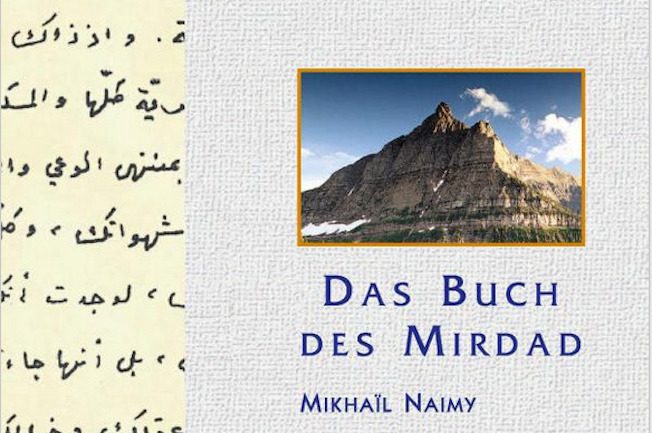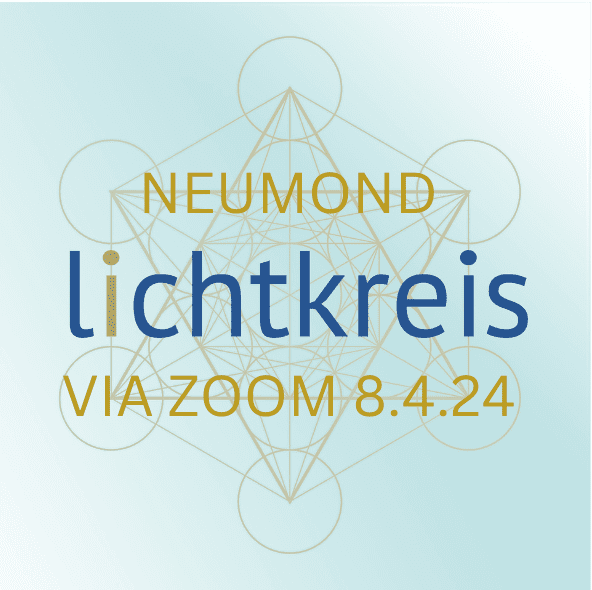 „Der Weg, der nicht für den Wanderer sorgt, ist kein Weg zum Wandern“ ist ein Zitat aus „Das Buch des Mirdad“ von Mikhaïl Naimy (1889-1988 – er wurde 99 Jahre alt). Der Autor war mit Khalil Gibran (1883-1931, „Der Prophet“) befreundet.
„Der Weg, der nicht für den Wanderer sorgt, ist kein Weg zum Wandern“ ist ein Zitat aus „Das Buch des Mirdad“ von Mikhaïl Naimy (1889-1988 – er wurde 99 Jahre alt). Der Autor war mit Khalil Gibran (1883-1931, „Der Prophet“) befreundet.
Weitere Auszüge aus dem Buch des Mirdad:
„Lass die Dinge in Ruhe und mühe dich nicht ab, sie zu ändern. Denn sie erscheinen, als was sie erscheinen nur, weil du erscheinst, als was du erscheinst. Die Dinge sehen und sprechen nur wenn du ihnen Gesicht und Sprache leihst. Wenn sie eine hartherzige Sprache sprechen, gib dann alleine acht auf deine Zunge. Wenn sie hässlich aussehen, untersuche dann zuerst und zuletzt dein Auge.“
Über die Liebe
„Oft höre ich euch sagen, die Liebe sei blind, womit ihr meint, dass sie keinen Fehler in dem Geliebten erkennen kann. Diese Art Blindheit ist der Höhepunkt des Sehens. Wäret Ihr nur immer so blind, dass ihr nirgends einen Fehler erblicken könnt.
Klar und durchdringend ist das Auge der Liebe. Darum sieht es keinen Fehler. Wenn die Liebe euer Sehvermögen gereinigt hat, dann werdet ihr nichts mehr sehen, was eurer Liebe unwürdig ist. Nur ein der Liebe beraubtes Auge findet stets Fehler. Welche Fehler es auch immer findet, es sind nur seine eigenen Fehler…..
Liebe ist der einzige Urheber des Wunders. Wenn du sehen willst, lass Liebe in der Pupille deines Auges sein. Wenn du hören willst, lass Liebe im Trommelfell deines Ohres sein.
Die Liebe leiht nicht und borgt nicht; die Liebe kauft nicht und verkauft nicht; aber wenn sie gibt, gibt sie alles; und wenn sie nimmt, nimmt sie alles. Sogar ihr Nehmen ist ein Geben. Sogar ihr Geben ist ein Nehmen. Darum ist sie stets dieselbe: heute, morgen und in alle Ewigkeit.“
Naimy sagte über sein Buch: „… es weicht tatsächlich von jedem festgelegten Dogma ab, und zwar auf religiösem, philosophischem, politischem und jedem anderen Gebiet. Seine Bedeutung liegt darin, dass es Wege zu einer neuen Betrachtung des Seins aufzeigt. Es will die Menschen aus der Gefühllosigkeit der vielen dogmatischen Verwirrungen wachrütteln …“
OSHO über Das Buch des Mirdad und Mikhail Naimy:
There are millions of books in the world, but The Book of Mirdad stands out far above any other book in existence. It is unfortunate that very few people are acquainted with The Book of Mirdad, for the simple reason that it is not a religious scripture. It is a parable, a fiction, but containing oceanic truth.
It is a small book, but the man who gave birth to this book… and mind my words, I am not saying the man who wrote this book. Nobody wrote this book. I am saying the man who gave birth to this book – he was an unknown, a nobody. And because he was not a novelist, he never wrote again; just that single book contains his whole experience. The name of the man was Mikhail Naimy.
It is an extraordinary book in the sense that you can read it and miss it completely, because the meaning of the book is not in the words of the book. The meaning of the book is running side by side in silence between the words, between the lines, in the gaps.
If you are in a state of meditativeness – if you are not only reading a fiction but you are encountering the whole religious experience of a great human being, absorbing it; not intellectually understanding but existentially drinking it – the words are there but they become secondary. Something else becomes primary: the silence that those words create, the music that those words create. The words affect your mind, and the music goes directly to your heart.
And it is a book to be read by the heart, not by the mind. It is a book not to be understood, but experienced. It is something phenomenal. Millions of people have tried to write books so that they can express the inexpressible, but they have utterly failed. I know only one book, The Book of Mirdad, which has not failed; and if you cannot get to the very essence of it, it will be your failure, not his.
He has created a perfect device of words, parables, situations. If you allow it, the book becomes alive and something starts happening to your being. And naturally, because you have never come to such a state, you are puzzled about what it is – sadness? Blissfulness? There are tears, but those tears can be either of sadness or they can be of immense joy. You have come to a point where you have never been before, so naturally you cannot categorize it. You cannot put a label on it according to your old experiences. But the name does not mean anything. What matters is that you have taken a step beyond yourself. You have never been in this space; you have entered into the unknown, and it is so unknown that you don’t have the vocabulary even to give it a name.









Welch ein Balsam für das Herz und die Seele. Gerade jetzt, wo das Herz so schmerzt angesichts der Situation in unserem Europa. Vielen Dank Bettina
Wunderbare Zeilen; ja, ich schließe mich an, Balsam fürs Herz und die Seele, so wohltuend. DANKE!
Und wie sagte schon Charles Eisenstein:
„Die schönere Welt, die unser Herz kennt, ist möglich“.
Möge also das Mögliche stabil gedeihen, in uns und im Außen…, Paula
Nun habe ich mir das Buch gleich bestellt. Es ist als „book on demand“ erhältlich, also erstmal noch warten
Ich habs auch bestellt.